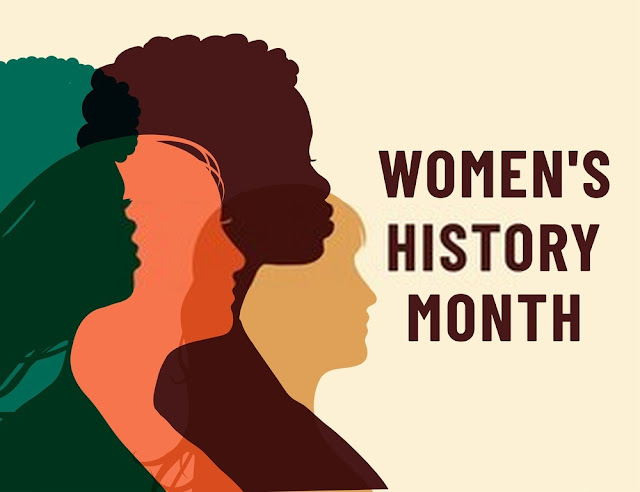The African-American Story and the Evolution of Black History Month
Dark History Month has been perceived each February for as far back as a big number of folks can recollect, however too few realize how everything became. For that, we'd like to travel right back to 1915 and a refined man named Carter G. Woodson. An alum of the University of Chicago, with a doctorate from Harvard, he's referred to as the "Father of Black History Month."
Throughout the late spring of that year, he participated during a celebration of liberation in D.C. alongside an enormous number of others and left away so roused that he found out the Association for the Study of Negro Life and History (ASNLH). After one year, he established The Journal of Negro History. His central goal: To advance the accomplishments of his kin.
Looking for far more noteworthy effect, in 1924, he and a couple of companions made Negro History and Literature Week, later renamed Negro Achievement Week. That was circled back to a politician statement reporting Negro History Week to be held in February.
That month was picked in acknowledgment of two compelling men: Lincoln who, as president, driven the country through the war years, and Douglass, a previous slave and social equality extremist who was additionally the darkest resident to carry a high U.S. government rank.
The center, be that because it may, was never on them, yet on all of the people of color and ladies who added to society. Such endeavors saw life steadily improving for blacks in America, and acknowledgment of Negro History Week spread the state over. In any case, not until the 1940s did dark history at long last make as it would like into textbooks, during this way encouraging mindfulness. At last, in 1976- - six years after Woodson's demise - his Association for the Study of Negro Life and History- - presently 100 years-changed its name to the Association for the Study of African-American Life and History. ASALH at that time made sure that multi-week was forgotten also because of the whole month of February.
Also, consistently since, both Republican and Democrat presidents have declared Black History Month's yearly topic. 2016's is "Consecrated Grounds: Sites of African-American Memories." As ASALH reminds us, "One can't recount the account of America without protecting and brooding about where African Americans have impacted the planet forever."
Then, some of these striking spots and individuals related to that set of experiences merit extraordinary notification, beginning path back to 1619 when the first African slaves showed up in Virginia and 1808 when Congress at long last prohibited their importation. At that time in 1861, the Confederacy was established, the profound South withdrew, and therefore the war started.
After two years, Lincoln gave his Emancipation Proclamation "liberating all people held as slaves." Nevertheless, the war didn't end until 1865; around then, the thirteenth Amendment to the Constitution was approved denying bondage. Recreation followed, and therefore the Fourteenth Amendment was then endorsed invalidating the 1857 Scott choice that held that Congress couldn't boycott servitude which slaves weren't residents. Three additional years needed to pass, in any case, before the fifteenth Amendment gave blacks the choice to cast a ballot.
Likewise critical:
1869: Howard University became our first dark grad school.
1877: Reconstruction finished within the South.
1879: Spelman College, the principal school for people of color, was established.
1879: Booker T. Washington established the Tuskegee Normal and Industrial Institute in Alabama.
1896: The Supreme Court's choice in Plessy v. Ferguson held that racial isolation is established.
1905: W.E.B. DuBois established the Niagara development, NAACP's precursor.
1909: The National Association for the Advancement of Colored People (NAACP) was established.
1914: Marcus Garvey found out the Universal Negro Improvement Association.
1947: Robinson endorsed with the Brooklyn Dodgers, breaking significant association baseball's shading hindrance.
1952: Malcolm X became a clergyman of the state of Islam.
1954: Brown v. Leading group of Education pronounced that racial isolation is against the law.
In spite of such walks, the subsequent year, Parks was captured for declining to surrender her transport seat to a white traveler. At that time, in 1957, nine dark understudies were banished from entering Central High, and therefore the National Guard must be brought in. History reminds us that in '63, Luther King, Jr. was captured and imprisoned during isolation fights, yet was granted the Noble Peace Prize the exceptionally one year from now. He was killed in 1968.
That very year, President Johnson marked the Civil Rights Act, Shirley Chisholm became the principal dark female U.S. Agent, and in '83, Guion Bluford, Jr. was the darkest in space. These advancements at that time drove us into the 21st Century:
2001: Powell was named the first African-American U.S. Secretary of State.
2005: Condoleezza Rice became the darkest female U.S. Secretary of State.
2008: Barack Obama was chosen leader of us.
2009: Eric H. Holder is known as the first African-American to fill in as U.S. Principal legal officer.
2015: There are 46 dark individuals from the U.S. Place of Representatives and a couple of within the Senate.
On the off chance that he could, today Mr. Woodson may say, "Finally."
Ditty may be a learning expert who worked with center younger students and their folks at the Methacton administrative district in Pennsylvania for over 25 years and now manages understudy educators at Gwynedd-Mercy University and Ursinus College. Alongside the booklet, 149 Parenting School-Wise Tips: Intermediate Grades and Up, and various articles in such distributions as Teaching Pre-K-8 and Curious Parents, she has created three fruitful learning manuals: Getting School-Wise: A Student Guidebook, Other-Wise, and School-Wise: A Parent Guidebook, and ESL Activities for each Month of the varsity Year. go here: Historianspeaks.org


This comment has been removed by the author.
ReplyDeleteHistorianspeaks.org
ReplyDeletewww.yamgo.com
ReplyDelete